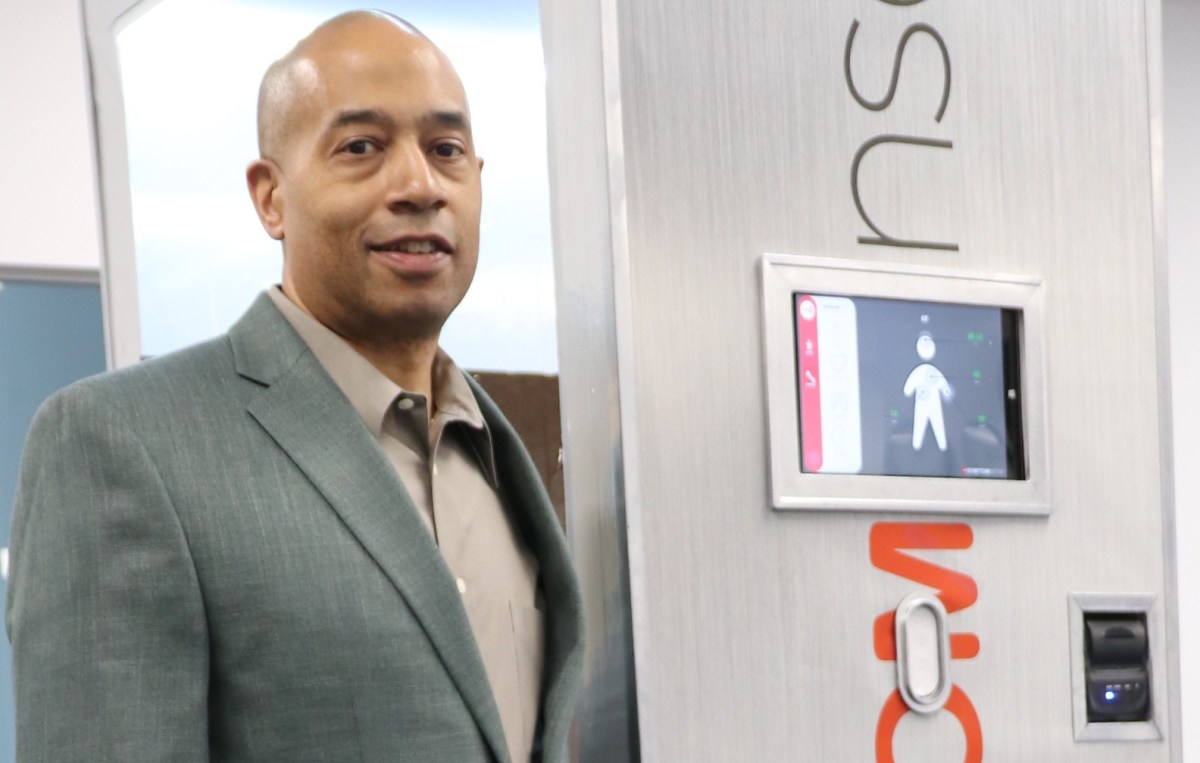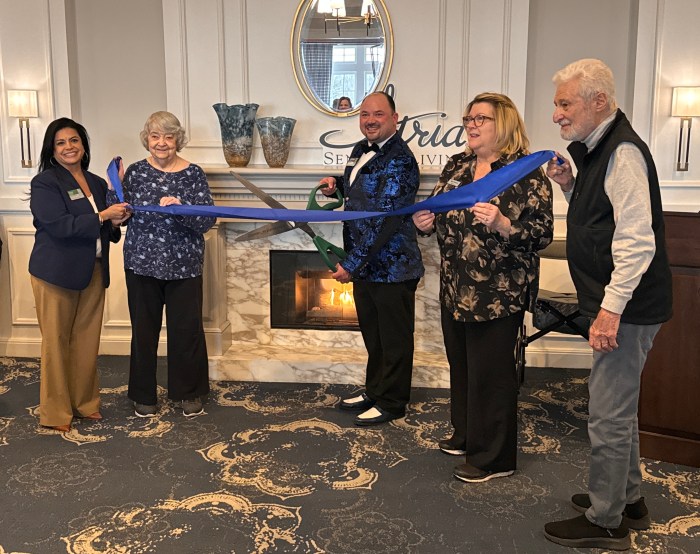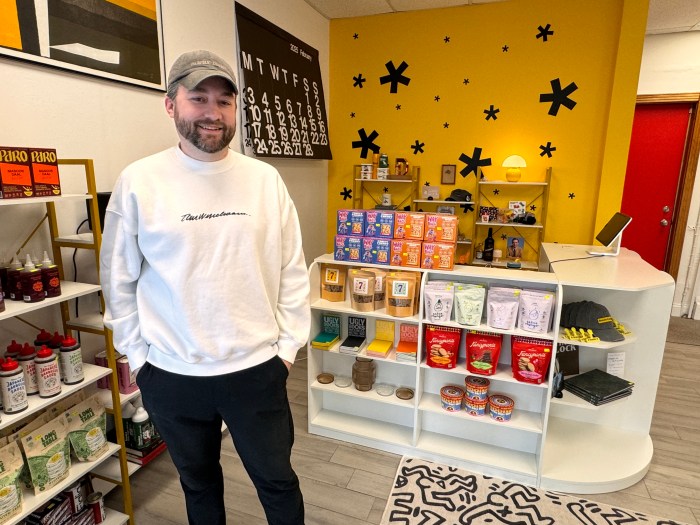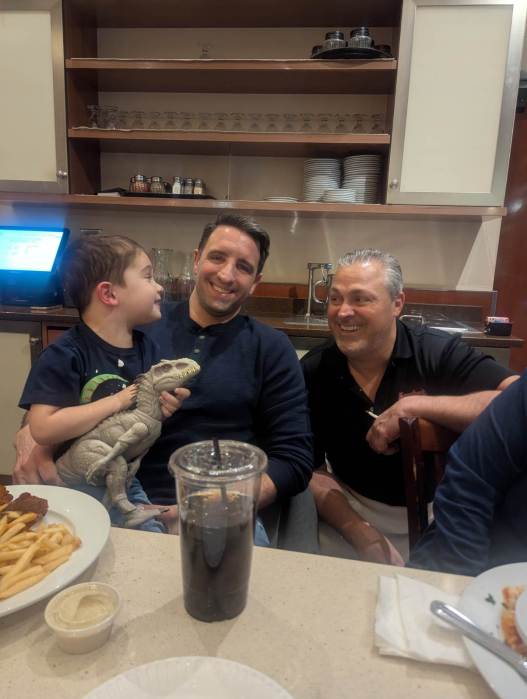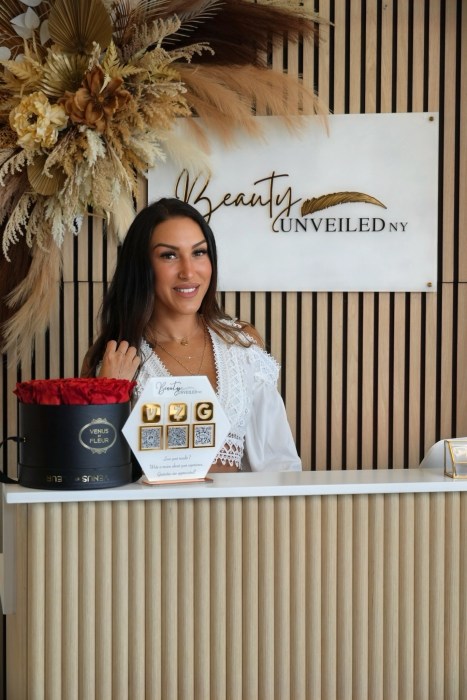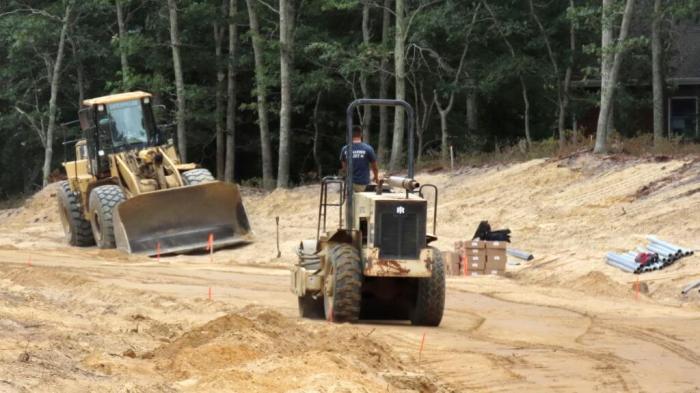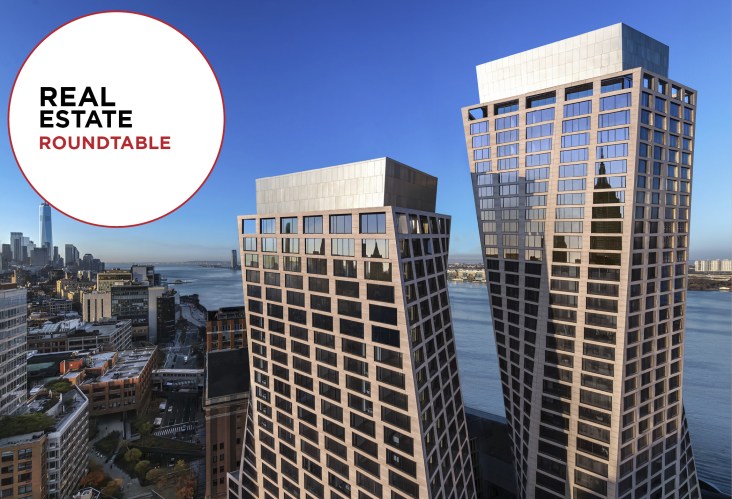As CEO of Ronkonkoma-based Soter Technologies, Derek Peterson is an engineer and entrepreneur. He talked with the Press about the tech sector, going from Symbol Technologies to his own company, developing sensors and new products for COVID-19, and being a Black CEO.
Can you tell us about the device you created to screen for COVID-19? We created a device called SymptomSense, a screening evaluation gateway. It screens for vital signs such as blood oxidation level, temperature, respiration and heart rate. It’s in the same format as a metal detector. You walk through it and it will scan you and give you a pass or not. We’ve learned that blood oxidation level is a better indicator than temperature. We’re shipping to sporting teams, NFL teams, Major League Baseball. We also have police departments, hospitals, health institutions, major bakeries, and food producers.
How did you get involved in sensors? We invented and designed the world’s first sensor to detect vaping. My background is in engineering. I’ve been creating sensors my whole career. It’s been part of my DNA to design sensors that keep people safe. The name Soter is inspired by the Greek god of safety, Soterus.
When did you start Soter? Soter was founded in 2017. It was born out of another entity called Digital Fly. We created Digital Fly with a product called FlySights, which was a social media monitoring tool. If you posted a threat against somebody, like a student, teacher or principal, we could identify that threat and alert authorities. We were focused on bullying.
How did that lead to Soter? Schools were asking, “Can you help with physical bullying? Kids are fighting in bathrooms.” We went back to the drawing board. You can’t put a camera or microphone in a bathroom. However we can put a decibel level sensor in a bathroom. We created our first device in 2016 that picked up on sound anomalies. And we branched into becoming a hardware company. We rebranded ourselves to become Soter Technologies.
How did you develop vaping sensors? Schools asked us if we could help them with the vaping problem. Kids were vaping in the bathrooms. We added sensors that could detect if kids are vaping. And we created the world’s first vaping detector. We’re in 21 countries and about 8,000 devices deployed. All of Europe, the Middle East, Latin America, Japan, Singapore. Everywhere. Australia, New Zealand. Canada.
Do you have to be an engineer and an entrepreneur? I’m an engineer first and a business person second. I like to invent and solve problems. However, I’m also on the business side. I view everything as a sport. I like to win. Building a business and winning deals, it’s sport to me, gamesmanship. And I enjoy the win. It’s satisfaction to invent and create technology. Can I sell this? Can I make a change in the world?
As a Black engineer and businessman, have you faced additional challenges? Now I’m 30-plus years into my career. I built a brand for myself so people understand and recognize who I am. I’ve gotten past a lot of the systemic issues in the engineering world earlier in my career.
What issues? Early in my career, working for other people, I was not paid equally compared to an engineer at the same level, same grade, sitting in the cube next to me. That has been documented. I had to get salary adjustments to catch up with my peers. In the engineering world, there are few minorities, African Americans and Latinos. Typically when I travel, one or two or three engineers at a conference. They’re just not there.
Why? That’s a good question. They’re just not given the same opportunities. Maybe they’re not given the same awareness that these roles and jobs are available. It starts at the high school level.
Have you been able to make a difference as a mentor? I work with local universities in regard to mentoring. I speak often at high schools and universities and bring awareness to what’s going on and job opportunities. I sit on boards like Timothy Hill, the children’s ranch in Riverhead, to help young adults.
How diverse is your company? My company on a percentage basis is probably one of the most diverse on the island. It’s the United Nations, men, women, Black, white, Latino. All mixed races. Everybody plays happily in the same sandbox. Everybody brings their own talents to the table. People come into the office and see the diversification. I look for good, talented people.
What new products are you developing? The next thing we’re working on is sensors to open up the schools due to the pandemic. Those will be in the marketplace in August. It’s different technology we’re doing for schools. They can purchase what we currently have, but we’re releasing technology to go a little further to ensure safety.
For more business coverage, visit longislandpress.com/category/business



